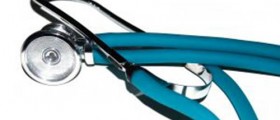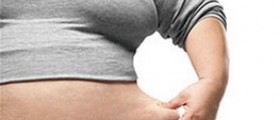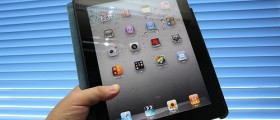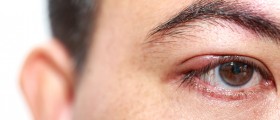The active component of the Buscopan tablets is hyoscine (hyoscine-N-butyl-bromide), known to have antispasmodic properties. It means that the tablets can be used to treat stomach cramps and spasms. Buscopan is not a pain medication, it doesn’t prevent the pain, but treat the reasons behind the pain. It relaxes the muscles in the stomach, intestines, urinary and reproductive tract because the spasm of those muscles is what’s causes the pain.
Common Side Effects of Buscopan
Some of the patients using Buscopan may experience certain side effects of the medication. The common side effects include dry mouth, blurred vision, urinary retention, tachycardia (the heart is beating faster than normal) and constipation. Sometimes patients are not sweating normally or may have a skin reaction to Buscopan.
Before the start of the treatment with Buscopan consult your doctor or pharmacist and report any other drugs you have been using (OTC, prescribed or herbal remedy).
The risk of dry mouth, blurred vision, urine retention and constipation is increased if Buscopan is used with other antispasmodic medicines, antihistamines (sometimes OTC or herbal remedies for cough and cold may contain these) and anti-nausea drugs. Medications for Parkinson’s, urinary incontinence (inability to control the bladder), antiarrhythmics, antidepressants and antipsychotics, amantadine and muscle relaxants also tend to increase the risk of buscopan side effects.
- Pharmacological studies have revealed that hyoscine butylbromide is an anticholinergic drug with high affinity for muscarinic receptors located on the smooth-muscle cells of the GI tract. Its anticholinergic action exerts a smooth-muscle relaxing/spasmolytic effect.
- Blockade of the muscarinic receptors in the GI tract is the basis for its use in the treatment of abdominal pain secondary to cramping. Hyoscine butylbromide also binds to nicotinic receptors, which induces a ganglion-blocking effect. Several pharmacokinetic studies in humans have consistently demonstrated the low systemic availability of hyoscine butylbromide after oral administration, with plasma concentrations of the drug generally being below the limit of quantitation. The bioavailability of hyoscine butylbromide, estimated from renal excretion, was generally
- However, because of its high tissue affinity for muscarinic receptors, hyoscine butylbromide remains available at the site of action in the intestine and exerts a local spasmolytic effect.
- Ten placebo-controlled studies have evaluated the efficacy and safety of oral or rectal hyoscine butylbromide. Hyoscine butylbromide was considered beneficial in all of these trials, which supports its use in the treatment of abdominal pain caused by cramping.
- Hyoscine butylbromide is barely absorbed and detectable in the blood and does not penetrate the blood-brain barrier, and is, therefore, generally well tolerated.
- Few adverse events have been reported; in particular, no significant increases in the incidence of anticholinergic-related adverse effects have been observed.
Interactions with Other Drugs
Buscopan shouldn’t be used with domperidone or metoclopramide, because these medications won’t work at all when combined.
Dry mouth as the side effect of Buscopan may affect the use of glyceryl trinitrate (GTN). This drug should be used sublingually (placed under the tongue) and due to less fluid in the mouth it became less dissolved and less effective too. So, if you are using GTN and Buscopan take a sip of water and then use the sublingual tablet.
Warning Signs
Be aware that the use of Buscopan may affect your vision and ability to operate some machinery or drive. If you are experiencing blurred vision it is recommended not to drive.
Redness or pain in the eye, headache, blurred vision, loss of sight and seeing haloes around lights are the reasons to check your eye at the doctors’.
Caution is necessary when using Buscopan in elderly people, especially in older men with enlarged prostate, patients with existing tachycardia, heart problems, overproduction of the thyroid gland, in case of fever and in people with a history of intestinal blockage.
Buscopan should not be used if the patient is suffering from myasthenia gravis (the condition of abnormal weakness of the muscles), megacolon, closed angle glaucoma, hereditary blood problems or fructose or sucrose intolerance. It is not recommended to use Buscopan tablets in children younger than 6 years. If you are allergic to the ingredients of Buscopan you shouldn’t be using these tablets.


















Your thoughts on this
Loading...